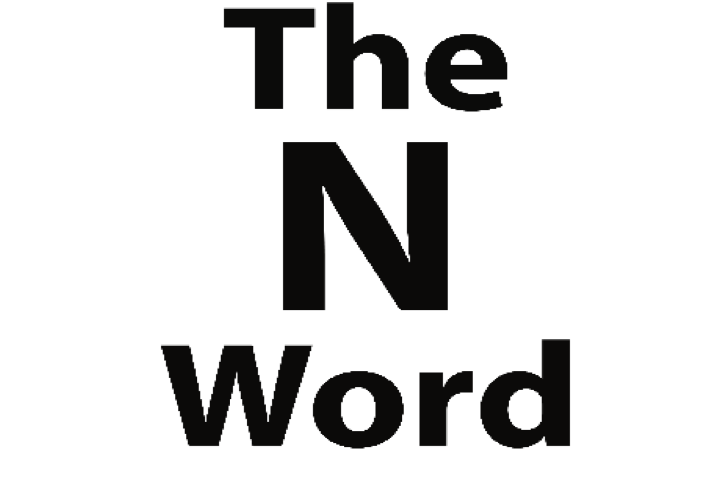For students, N-word presentation fell short
Adviseries learned about history, impact of the word
Though students and staff appreciated the aim of last month’s N-word discussion, the presentation garnered mixed reviews on its length, setting, topics covered, and adviser execution.
The four day advisery presentation explored the violent history of the N-word, facilitated discussions and reflection, and encouraged students to make more thoughtful choices about language and the use of slurs.
Patricia Savage-Williams, the Special Ed Department Coordinator, was on the committee that developed the curriculum. She believes the presentation is important because it educates white students about the word and the harm that its usage can inflict.
“When white students use the N-word, they are knowingly or unknowingly drawing on a history of White violence and injustice toward people of color, especially black people in America. When students of color hear white students use the N-word, they feel unsafe,” said Savage-Williams.
Although Savage-Williams does not expect the presentation to completely halt the use of the N-word in the school, she believes that it will make students think twice before they use racial slurs.
“Students will understand and be
more reluctant to use the N-word as a result of this lesson,” said Savage- Williams.
In addition to the history of the word, senior Brian Joseph believes the presentation is particularly important to the New Trier community because of racist acts that have been committed at the school over the past few years.
“Individual instances of discrimination and sometimes even racism do occur at our high school—the writing of offensive, derogatory language and symbols on the walls of some of the bathrooms is the most pertinent example,” said Joseph. “Activities like this that allow for constructive conversation surrounding an inherently uncomfortable topic may help decrease instances like these in the future.”
As part of the presentation, the administration and school board released a statement that said, “We do not want our student body to use the N-word and racial slurs. These words reflect poorly on those who say them, they hurt others, and they destroy our school community.”
Senior Isabelle Calkins believes this statement utilizes language that is too noncommittal, and doesn’t specifically mention accountability for the use of racial slurs. Calkins specifically took issue with the phrase “We do not want….”
“How about ‘We will not tolerate?’ If the administration wants to take a stand against the N-word they need to make their stance clear and unquestionable,” said Calkins.
Though Calkins did state that the administration took constructive risks
and sparked productive discussion, she felt the presentation fell short in a few ways.
“This needed to be a much longer discussion, and a discussion that didn’t happen in our gender- binary adviseries. I appreciate the effort, I really do, but is this thetoughest conversation we will have to have to make a serious difference? Far from it,” said Calkins.
Sophomore Erik Jaman disagreed with Calkins in terms of length–he thinks the discussion should have been shorter, not longer.
“It’s an important topic, but I think it was drawn out a little too long. I think two days maximum. There was really just two days of silence, just my teacher talking and all of us saying nothing or repeating what we already said,” said Jaman.
According to Jaman, many students already know the history of the word, so learning it once again
was redundant.
Senior adviser Katie Parks
took issue with a different aspect of the presentation. Because this was the first time the presentation was shown at the Winnetka campus, Parks recognized that there were a few kinks to work out among advisers.
“I think for a lot of advisers this is very new, this is very different. And unfortunately that means at least from what I’m hearing that it was hit or miss. And that’s unfortunate because it’s such an important discussion to have,” said Parks.
Moving forward, senior adviser Egle Baliukaite would like to broaden the discussion to address other slurs or instances of racial injustice.
“We really concentrated on the N-word and it was only towards the end that we said ‘and other slurs.’ So maybe then the next step is to expand a little bit more. I think that this is just the first step and I hope that
there’s a lot more, because clearly it’s important, both in larger society and just at our school.”
According to Assistant Superintendent for Student Services Tim Hayes, the administration does intend to expand the conversation in the future through their strategic plan.
“Our strategic plan has this whole initiative related to equity, and every department, area, and program in the school has an equity goal right now. And so for English, for example, it’s around understanding what books and pieces of literature do we read and which should be added to what we’re reading that’s maybe beyond the traditional canon,” said Hayes.
Savage-Williams wants students to know that the administration will be collecting feedback on the presentation and take it into consideration when creating similar curricula in the future.
“We are in the process of collecting feedback. I have heard a variety of informal reactions–mostly positive. However, there are those who continue to wonder why we are doing this,” said Savage-Williams.
Although there is still significant room for improvement, adviser John Burnside remains determined to help further these conversations.
“I hope I get to continue to learn, and I hope I become better at having these difficult but important conversations because I want every student to be comfortable in the building. We all want that ultimate goal where everyone comes into the building and is comfortable and accepted and recognizes that they are recognized in all ways,” said Burnside.








































